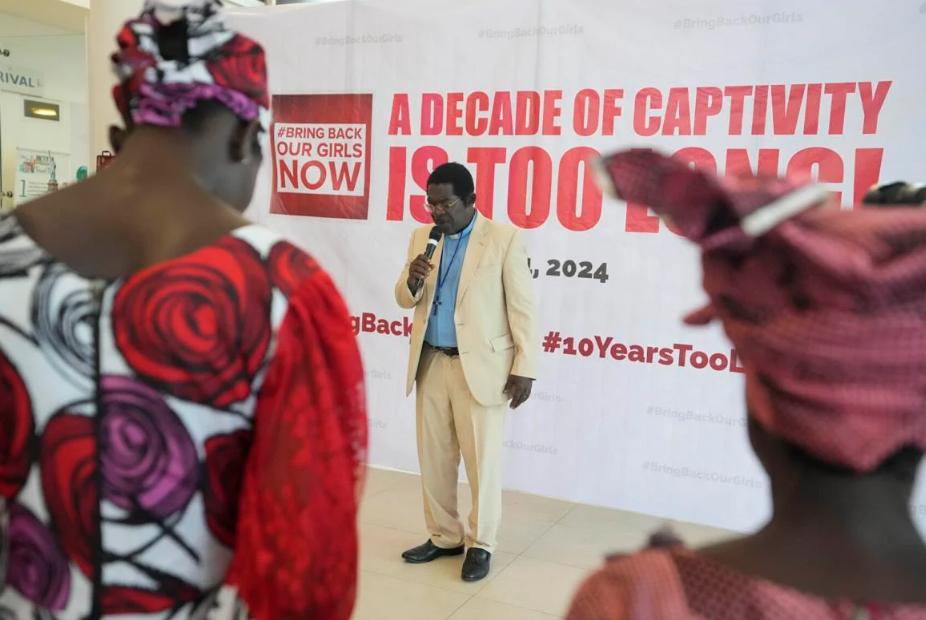Lagos marks 10th anniversary: The terrible night that darkness fell upon the Nigerian town of Chibok has been ten years ago.
Nearly 300 students, who were studying for science examinations, were taken on April 14, 2014, when Islamic militants stormed the Government students Secondary School in Chibok, Borno state.
On Sunday, campaigners and affected individuals converged in Lagos to mark the tenth anniversary of the abduction. They continued to call for the release of the almost one hundred girls who are still in captivity.
The kidnapping of the Chibok girls was Nigeria’s first high-profile case of school abduction.
Those who have survived traumatic events, such as Grace Dauda and Rebecca Mallum, are now sharing their tales to inspire others. Dauda describes the difficulties of recuperation after spending three years in captivity and needing numerous surgeries to repair wounds. After enduring four surgeries, she took advantage of the chance to study in the United States, finding comfort in her education against the odds.
Armed organizations in the mineral-rich but weakly policed northwest region have increasingly seen over 1,500 students as a lucrative means to fund other criminal activities and impose influence over villages. Since then, the number of abductions has risen.
The criminal groups attacking villages in northwestern Nigeria are mainly former herdsmen in confrontation with farming host communities, according to officials. This is in contrast to the Islamic fanatics who were responsible for the Chibok kidnapping. Armed with weapons smuggled across Nigeria’s porous borders, they operate without a centralized command structure and attack mainly for economic reasons.
According to some experts, the worsening security situation in Nigeria is reflected in the rising number of school kidnappings.
Recent research by the UN children’s agency’s Nigeria office shows that many schools still have the same security issues that contributed to the Chibok kidnappings a decade ago. Out of more than 6,000 schools examined, 43% did not have security guards or perimeter fencing, two of the most basic safety requirements.


















